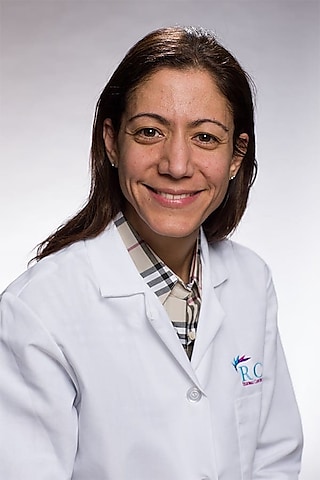The earlier breast cancer is detected, the greater the likelihood of survival. It is a straightforward concept, one that is supported by the evidence and that makes sense intuitively.

Indeed, Joel Silver, MD, notes that the latest statistics from the National Cancer Institute (NCI) show that the five-year survival rate for women diagnosed with localized breast cancer is 99%, while that rate is 85% for women whose breast cancer has spread regionally at the time of diagnosis, and 27% for the small proportion of women who are diagnosed when their cancer has spread more distantly.1 But Dr. Silver adds that those clear-cut numbers require context. “The NCI statistics pertain to women who were diagnosed between 2008 and 2014, the last period for which the institute has a comprehensive data set. As the American Cancer Society (ACS) emphasizes,1 and as my own clinical experience shows, advances in diagnosis and treatment over the past five years have resulted in an even more favorable outlook for women being diagnosed today, particularly in terms of the way we’re able to manage breast cancer that has spread regionally or distantly,” says the board-certified medical oncologist, who practices in the West Hartford, Conn., offices of Regional Cancer Care Associates LLC (RCCA), one of the nation’s largest networks of cancer specialists.
Similarly, Dr. Silver and his RCCA colleagues add that women need to be aware of three other nuances pertaining to seemingly straightforward steps in the effort to detect breast cancer as early as possible.
Breast exams. The ACS no longer recommends that women at average risk for breast cancer examine their own breasts (breast self-examinations, or BSEs) or undergo a clinical breast examination (CBE) by a physician or other qualified health care professional. The society explains that this change, which it incorporated into the latest version of its breast cancer screening guideline in 2015, was based on studies suggesting that “CBE contributes very little to early breast cancer detection in settings where mammography screening is available and awareness is high.”2 Additionally, the ACS said that, “Evidence does not show that regular breast self-exams help reduce deaths from breast cancer.”2

May Abdo-Matkiwsky, DO, does not agree with this change. “I have great respect for the American Cancer Society and the wonderful work it does, but I still advise patients to examine their breasts periodically and to have clinical breast exams. I’ve had a number of patients who have come to me with a diagnosis of breast cancer who found a lump or an abnormal mass on examination despite a negative mammogram or ultrasound,” says the board-certified medical oncologist, who cares for patients at RCCA’s Sparta, N.J. offices.
Mammography. The ACS 2015 guideline also revised the society’s position on mammography. The guideline recommended that women at average risk begin annual mammography screening at age 45 — rather than at age 40, the prior recommendation — and that women transition to screening every two years once they reach age 55 (with the option of continuing annual screening).2

Dongmei Wang, MD, a board-certified medical oncologist who practices with RCCA in Rockville, Md., notes that guidelines from other respected cancer organizations continue to recommend starting mammograms at age 40. She adds that from her perspective as a physician who treats numerous women with breast cancer, she supports starting screening sooner rather than later.
“Further, the ACS guideline notes that women who are age 55 years or older who have a life expectancy of at least 10 years may opt to continue with annual mammograms rather than moving to screening every other year. As a medical oncologist, I think it makes sense for most women to stay with annual screening,” says Dr. Wang.
Genetic screening. Many women at elevated risk for breast cancer due to family history, ethnic background or other factors underwent genetic screening several years ago, when tests for the BRCA1 and BRCA2 genes linked to breast cancer risk first became available. Since then, however, researchers have identified several other genes implicated in elevated risk for breast cancer, and many of these genes now are included in expanded genetic panels.
Dr. Abdo-Matkiwsky says, “If you had genetic testing for breast cancer risk more than a few years ago, talk with your physician or a genetics counselor about which genes were included in your test and whether it makes sense for you to be screened again with a broader panel.”
Dr. Silver adds that while it is important to be aware of these nuances, the overarching message is that women today have several effective tools for partnering with their physician to facilitate early detection. “More than 268,000 women in the U.S. will be diagnosed with breast cancer this year.3 Fortunately, in a very high percentage of cases, those cancers will be localized, and the prospects for cure will be quite good. Even in the more-advanced cases, patients have a better outlook than ever before. By taking a proactive approach to early detection, women literally can save their own lives, and ensure a good quality of life, as well.”
With more than 80 cancer specialists and 800 staff members at 20 care centers throughout Connecticut, Maryland, New Jersey and the Washington, DC area, RCCA provides care to more than 22,000 new patients and 225,000 established patients each year. It offers those patients immunotherapy, targeted treatment, cell-based therapy, and other cutting-edge treatments and diagnostic modalities, as well as access to clinical trials.
To learn more about RCCA or to schedule an appointment, call (844) 928-0089 or visit www.RCCA.com.
References:
- American Cancer Society. Survival rates for breast cancer. Available at cancer.org/cancer/breast-cancer/understanding-a-breast-cancer-diagnosis/breast-cancer-survival-rates.html. Accessed Oct. 11, 2019.
- American Cancer Society. Frequently asked questions about the American Cancer Society’s Breast Cancer Screening Guideline. Available at cancer.org/cancer/breast-cancer/frequently-asked-questions-about-the-american-cancer-society-new-breast-cancer-screening-guideline.html. Accessed Oct. 12, 2019.
- American Cancer Society. How common is breast cancer? Available at cancer.org/cancer/breast-cancer/about/how-common-is-breast-cancer.html. Accessed Oct. 12, 2019.
